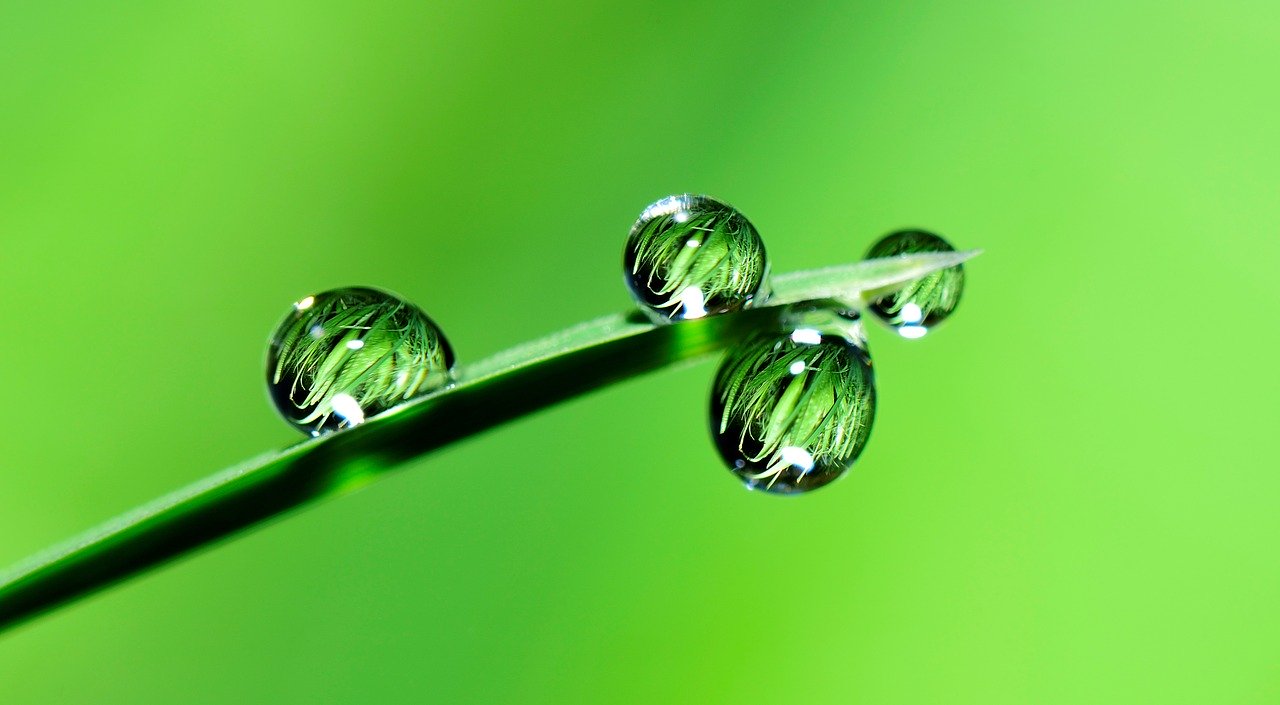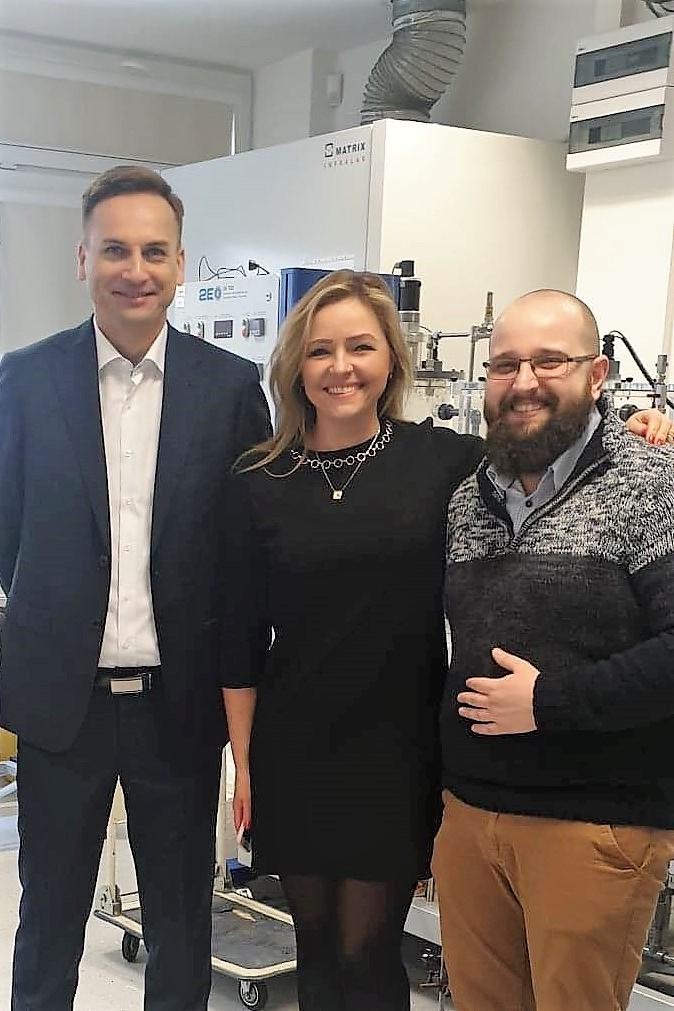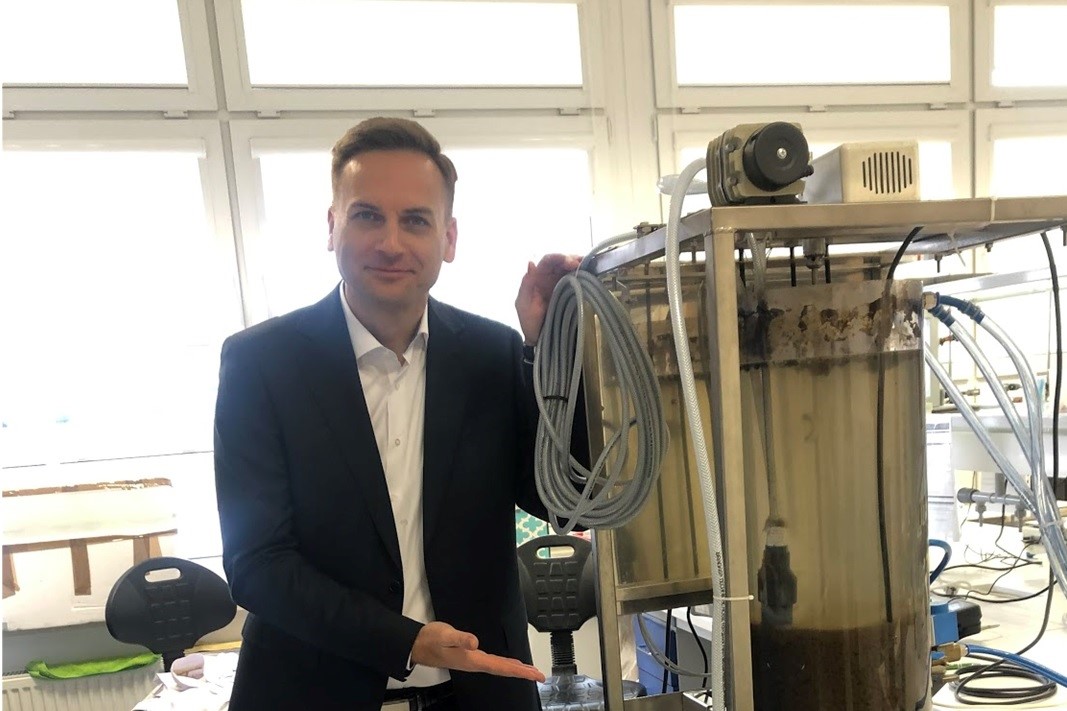YOUR BROWSER IS OUT-OF-DATE.
We have detected that you are using an outdated browser. Our service may not work properly for you. We recommend upgrading or switching to another browser.
Date: 10.05.2020 Category: science/research/innovation
Properly stored rainwater can be used for household laundry - this is what transpires from research carried out by scientists from Wrocław University of Science and Technology, Białystok University of Technology, and the Institute of Meteorology and Water Management. Conclusions from the experiment have already been published in the journal "Water".
 Apart from the coronavirus epidemic, Poland is currently also struggling with the problem of drought. The Institute of Meteorology and Water Management has just introduced a new type of warning. Since the beginning of May, weather experts have been warning the public of hydrological drought. Currently, due to low water levels in rivers, such warnings are in force in six voivodships, with south-western Poland seeing the worst situation.
Apart from the coronavirus epidemic, Poland is currently also struggling with the problem of drought. The Institute of Meteorology and Water Management has just introduced a new type of warning. Since the beginning of May, weather experts have been warning the public of hydrological drought. Currently, due to low water levels in rivers, such warnings are in force in six voivodships, with south-western Poland seeing the worst situation.
The problem of water scarcity may become even more severe in the coming months, which is why it’s so important to develop new technologies for prudent and rational use of water, including sustainable water obtainment.
One idea is to use rainwater for everyday home activities where potable water is not required. The issue concerns activities such as doing the laundry, for which activity - next to taking a bath and flushing the toilet - we use the largest amounts of water.
The research was carried out by scientists including Bartosz Kaźmierczak, PhD, Dsc, Eng. and University Professor Piotr Jadwiszczak, PhD. Eng from WUST’s Faculty of Environmental Engineering, Joanna Struk-Sokolowska, PhD. Eng, Joanna Gwoźny-Mazur, PhD. Eng, Andrzej Butarewicz, PhD, DSc, Eng, and Piotr Ofman, PhD, Eng. from the Faculty of Civil Engineering and Environmental Sciences at Białystok University of Technology, and Marcin Wdowikowski from the Institute of Meteorology and Water Management – the State Research Institute in Warsaw.
 – Our department constantly deals with issues of saving, recovery and protection of water. Our research projects related to rainwater are a response to the growing pressure on water supply systems caused by shrinking water resources in the time of hydrological drought, which is now a media talking point. At one of the stages, we undertook scientific research into the safety of using locally collected rainwater to wash clothes at home - says Professor Bartosz Kaźmierczak.
– Our department constantly deals with issues of saving, recovery and protection of water. Our research projects related to rainwater are a response to the growing pressure on water supply systems caused by shrinking water resources in the time of hydrological drought, which is now a media talking point. At one of the stages, we undertook scientific research into the safety of using locally collected rainwater to wash clothes at home - says Professor Bartosz Kaźmierczak.
The tests involved checking the changes in the quality of rainwater kept in a tank for 30 days. The guiding principle of rainwater utilisation systems is to collect periodically occurring rainwater locally and keep it for later use.
Normally, the systems are designed to store the amount of water corresponding to the demand for 14 to 21 days. - We decided to extend the period covered by the research to one month. Due to the limited dynamics of changes in the parameters of the stored water, we studied its composition on the day of collection and then every 10 days - adds Professor Bartosz Kaźmierczak.
The evaluation of the possibility of using rainwater for washing was conducted in terms of quantity and quality. Wrocław University of Science and Technology was responsible for the installation-related solutions, Białystok University of Technology for water quality, and the Institute of Meteorology and Water Management – the State Research Institute for precipitation data.
- Białystok University of Technology was were the microbiological tests and physico-chemical analysis of the collected and stored rainwater took place. We determined the demand for rainwater and how much of it was available based on statistics from 50 years of precipitation measurements throughout Poland carried out together with the Institute of Meteorology and Water Management - explains Piotr Jadwiszczak, PhD.
The project’s biggest challenges were the long period of field research and maintaining the assumed conditions of the experiment. The research installation was a typical rainwater collection and storage system for single-family buildings used in commercial solutions available on the market. As far as the research of water characteristics is concerned, modern laboratory equipment was used, including atomic absorption spectrometer.
 - The analysis comprised tests of physical-chemical and microbiological parameters of water in terms of use safety and compliance with the European directives’ requirements with respect to potable water and water for bathing purposes. We evaluated the water parameters that determine the effectiveness of washing clothes in this water. The tests were carried out under the applicable standards, with due diligence, using high-grade laboratory equipment - emphasises Piotr Jadwiszczak, PhD.
- The analysis comprised tests of physical-chemical and microbiological parameters of water in terms of use safety and compliance with the European directives’ requirements with respect to potable water and water for bathing purposes. We evaluated the water parameters that determine the effectiveness of washing clothes in this water. The tests were carried out under the applicable standards, with due diligence, using high-grade laboratory equipment - emphasises Piotr Jadwiszczak, PhD.
Importantly, the quality of rainwater supplied to buildings depends on many factors and processes. The precipitation itself can carry various pollutants assimilated from the atmosphere, and more pollutants and other compounds can be flushed from the roof. However, when stored in a tank, rainwater can change its parameters, and finally, before being used in households, it can be subject to various treatment processes.
Throughout the project, the researchers focused on the process of the "ageing" of water kept in a tank for 30 days. They obtained very positive results, which showed that the process of 30-day storage of rainwater in an underground household tank makes it suitable for use for washing clothes in our homes. During the entire storage period, the rainwater met the requirements for bathing water quality (according to EU directives) and was therefore suitable for washing.
 - We obtained the results we’d expected. We weren’t disappointed by the microbiological stability of the rainwater stored in an underground tank without access to light. The "blossoming", i.e. a change in the colour of the water caused by the mass development of various types of micro-organisms and water putrification don’t occur in rainwater utilisation systems based on proper installation solutions. As engineers, by using appropriate construction and technological solutions, we ensure the safety of the use of the supplied rainwater, as well as its high quality - stresses Professor Bartosz Kaźmierczak.
- We obtained the results we’d expected. We weren’t disappointed by the microbiological stability of the rainwater stored in an underground tank without access to light. The "blossoming", i.e. a change in the colour of the water caused by the mass development of various types of micro-organisms and water putrification don’t occur in rainwater utilisation systems based on proper installation solutions. As engineers, by using appropriate construction and technological solutions, we ensure the safety of the use of the supplied rainwater, as well as its high quality - stresses Professor Bartosz Kaźmierczak.
Rainwater has proven to be a very good component of the washing process. It is soft, pH-neutral, free of chlorine and other substances that deteriorate the effectiveness of washing or make the use of additional detergents necessary. It reduces the need for washing agents and prolongs the life of the washing machine, as its components don’t overgrow with scale.
- We expect that soon the local use of rainwater will switch from being a fashion to everyday practice, whether caused by regulations, economics, shortages of water from the current sources, or growing user awareness. Washing in rainwater is beneficial for us and the environment - emphasises Piotr Jadwiszczak, PhD.
Our site uses cookies. By continuing to browse the site you agree to our use of cookies in accordance with current browser settings. You can change at any time.